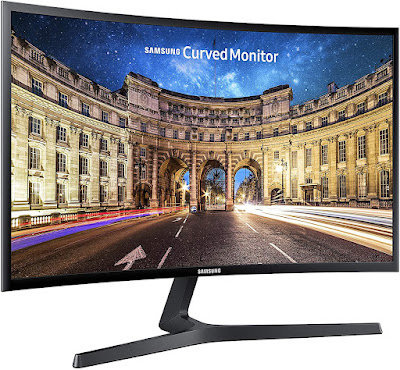Is too much Screen Time Dangerous?
No matter how much you may try to avoid it, screens are an integral part of everyone’s lives and they are inescapable. With the increased use of electronics also comes increased concerns about how they affect us and our children. Many of us grew up with the old adage of “getting square eyes” or "you'll go blind" when we sat too close to the TV, but what are the real-life effects of too much screen time? Read on to see how too much screen time affects our eye health.
This post contains Amazon affiliate links.
Screen Effects on your vision
The rise in popularity of blue light filtering glasses has made us all think about how brightly lit screens might negatively impact our vision. If you work on a computer all day then you have probably felt some of these effects of too much screen time such as headaches and dry eyes, but you can also start to suffer from eye strain and even blurred vision. To combat these problems, you can use the aforementioned blue light filtering glasses, always work in good light, and avoid sitting in the dark staring at a screen. The number one rule for fighting computer vision syndrome is the 20-20-20 rule – every 20 minutes you should take a break and stare at an object that is about 20 feet away for 20 seconds. This helps give your eyes a break, and if you keep it up, you should notice a significant difference in your level of eye comfort.
Eye Strain Sleeping problems
We are all guilty of scrolling through our phones right before bed but when we do this the light emitted from the device can interfere with your brain's sleep cycle and prevent you from getting a good night’s sleep. The bright blue light that comes from phones and tablets disrupts your natural production of melatonin (the hormone that makes you sleepy.) To keep this disruption to a minimum, you should ban phones from the bedroom and avoid screens for at least an hour before you plan on getting into bed.
Chronic pain
Aside from the effect of the brightly lit screens, we can also see electronic devices affecting our posture and causing neck, shoulder, and back pain. If you are sitting at a computer or laptop for long periods of time, then you will often find yourself hunching over or gradually starting to slump. Take regular breaks from sitting down to walk around the room, stand up or stretch your body, and make sure your chair has sufficient back support. Check out the correct seating posture for office work and make sure you follow the guide on how to sit.
Limit screen time
Set an example – remember that you are an example for your children, so avoid that absentminded scrolling on your phone when your children are around.
Set aside time to unplug – choose a time when the whole family has to unplug from their electronic device and spend quality time together without phones, tablets, or TVs.
Use parental controls – not only can parental controls block unwanted content, but you can also set daily screen time limits that lock your children out of apps once they have reached a set amount of time.
If you follow these simple tips, you can reduce the effects of too much screen time. Your eyes will thank you!
Recommended:
Pros and Cons of Ipads and Tablets in the Classroom
Fun Things to do at your Local Library


























